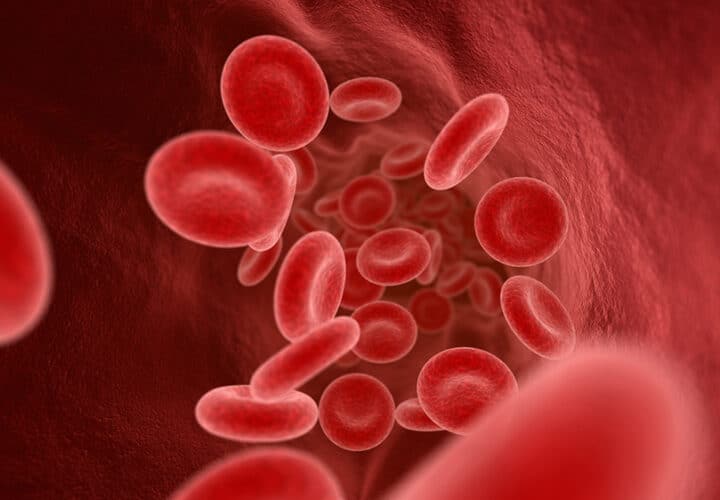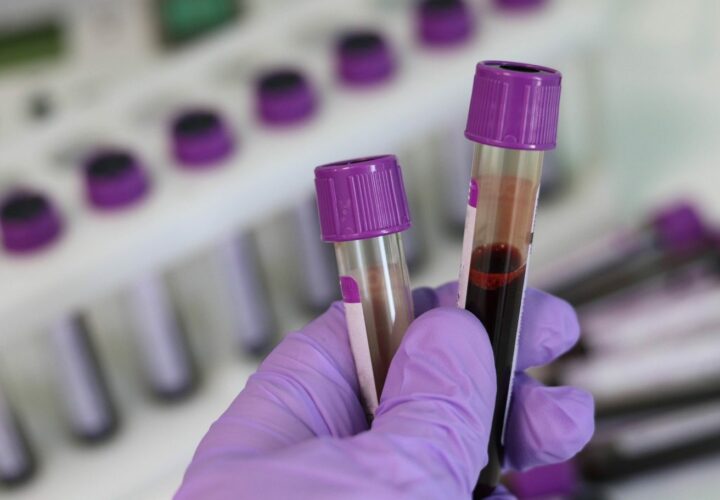At at AAIC 2023, Phil Gutis sat down with C2N Diagnostics CEO Joel Braunstein for the scoop on the company's forthcoming blood test for Alzheimer's disease.
It was 7:20 a.m. and Joel Braunstein, co-founder and CEO of C2N Diagnostics, was about to start his second meeting of the day.
C2N is at the forefront of developing blood-based tests for Alzheimer’s and the pressure has been building on both him and his company. I sat down with him during the recent Alzheimer’s Association’s International Conference at the fabulous breakfast room in Nhow RAO hotel near the Amsterdam convention center and asked Braunstein how it felt to be a pioneer in such a critical space.
“I don’t sleep that well at night,” he said with a tired smile. “We have very bold ambitions. We take our work very seriously, and we know the social implications of what we do. We feel a huge sense of responsibility.”
In many ways, Braunstein’s work and those of other researchers looking into blood-based biomarkers for Alzheimer’s disease was the talk of AAIC in Amsterdam.
Yes, there was data about another disease-modifying treatment from Lilly. Yes, there were dozens of sessions about other elements of research that are providing even more promise to the field of Alzheimer’s research.
But it seemed that virtually every other word you heard in the hallways and receptions was blood-based biomarkers.
As my colleague Simon Spichak noted, scientists have been working for years to develop accurate blood tests that measure proteins that serve as proxies of beta-amyloid and tau in the brain.
One of those studies involved C2N’s work. Dr. Sebastian Palmqvist of the Clinical Memory Research Unit at Lund University reported that C2N’s PrecivityAD2 blood test for Alzheimer’s proved accurate in diagnosing the disease 85 percent of the time.
In our breakfast chat, Braunstein noted that C2N’s PrecivityAD2 test is as accurate as PET scans and cerebral fluid obtained by a spinal tap. In fact, Eli Lilly used C2N’s blood biomarker in its Phase 3 clinical trial and analysis for donanemab, which reported positive results in Amsterdam.
Asked about the ability of the medical systems in the United States and worldwide to adapt to a blood-based test for Alzheimer’s, Braunstein reached back to the days when heart disease was a more deadly condition.
It was only when cholesterol was discovered in the early 1990s to be a biomarker for heart disease, Braunstein said, that heart conditions became much more of a chronic manageable disease, treatable by use of statins and other medications.
“The FDA, when it approved the first cholesterol medication,” Braunstein explained, “did not base it on outcomes like lessened myocardial infarction or heart attack or death.”
Instead, he said, they based their approval decision on clinical measures or outcomes, which they found were improving from treatment.
“The question was do the biomarkers inform as to what the clinical outcomes are going to be,” Braunstein said. “Within a couple of years, it was proven that in fact you could use these biomarkers to more accurately predict an individual’s clinical outcome and that by intervening on those biomarkers and changing the trajectory of those biomarkers, you can then have a meaningful impact on clinical outcomes.”
My cholesterol has been high, even during times when I exercised strenuously every day. So I take a statin — a 40 mg atorvastatin calcium tablet daily — so I completely understood Braunstein’s analogy.
In fact, I’m a walking textbook example of comorbidities that tend to correlate with a higher chance of Alzheimer’s disease: high blood pressure, high cholesterol, type 2 diabetes, depression, anxiety. And, again, I dealt with these even during periods of intense exercise. Thanks genes!
Braunstein was one of the folks at the conference who spoke of eventually turning Alzheimer’s, like heart disease, into a manageable chronic disease. In this way, he looked to cancer where in the last 15 to 20 years “the amount of innovation, cancer staging and then the use of predictive biomarkers and precision medicine has able to identify cancer earlier to help identify which patients are appropriate for which treatment and to help monitor treatment responses.”
“That’s what gets me really excited because I think we’re living in the beginning, beginning phases of what we went through with cancer care, cardiovascular care,” Braunstein said right before he rushed off to his next meeting.
Braunstein wasn’t the only one to talk about Alzheimer’s and other fatal cognitive diseases being transformed to chronic manageable conditions.
It is almost inconceivable to believe that we could be within years of that significant a change. But I suppose that’s what people with heart disease and cancer were saying not all that long ago.
Phil Gutis is a former New York Times reporter and current Being Patient contributor who was diagnosed with early onset Alzheimer’s. This article is part of his Phil’s Journal series, chronicling his experience living with Alzheimer’s and his participation in the aducanumab clinical trial.





Phil – Great job writing the article on “Phil’s Journal: C2N’s Alzheimer’s Blood Test”. It was well written and very insightful. Thanks for all that you do to raise awareness and educate folks on very important issues around dementia.